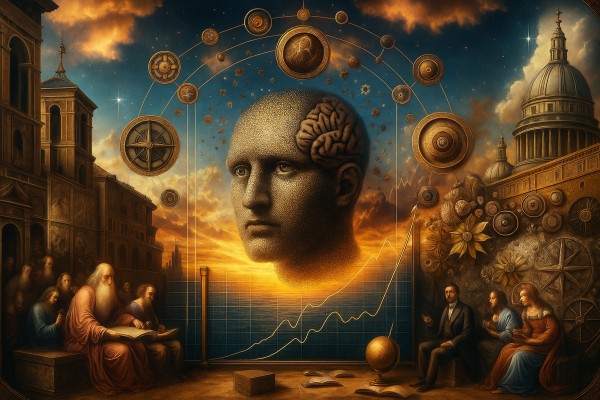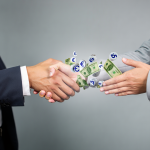Dunning-Kruger Effect Graph: The Shocking Overconfidence Trap
April 27, 2025
Few cognitive phenomena are as perplexing and pervasive as the Dunning-Kruger effect, a psychological bias that fuels misplaced confidence in areas where individuals lack the necessary skill or understanding. First documented in 1999 by psychologists David Dunning and Justin Kruger, this bias has left an indelible mark on disciplines ranging from psychology and behavioural finance to leadership and decision-making. By dissecting the infamous Dunning-Kruger effect graph and exploring its broader implications, we uncover a sobering truth: overconfidence can be a trap that blinds us to our limitations and blocks our growth path.
The Anatomy of Overconfidence: A Graph That Reveals All
The Dunning-Kruger effect is best visualised through its iconic graph, which maps perceived ability against actual competence. It begins with a steep rise in confidence at the earliest stages of learning, when individuals gain just enough knowledge to believe they’ve mastered a subject. This inflated confidence peaks at what’s often humorously called “Mount Stupid.” However, as these individuals begin to confront the true complexity of the domain, their confidence plummets into the “Valley of Despair,” where they recognise the vast expanse of their ignorance. Only through persistent effort and experience can they ascend the “Slope of Enlightenment,” reaching a more balanced alignment between competence and confidence.
This journey is a paradoxical hallmark of human cognition: the less skilled someone is, the less likely they are to recognise their incompetence. Meanwhile, true experts often downplay their abilities because they’re acutely aware of what they don’t know. This dichotomy highlights the profound cognitive blind spots that the Dunning-Kruger effect reveals.
The Metacognitive Blind Spot: Why We Fail to See Our Flaws
The Dunning-Kruger effect doesn’t just reveal overconfidence—it exposes a failure of metacognition, the ability to reflect on and evaluate one’s thinking. This “double curse” leaves the least competent individuals unable to perform well and incapable of recognising their poor performance. Essentially, the very incompetence that fuels their overconfidence also blocks them from seeing it.
The psychological mechanism behind this bias is as ancient as human thought itself. As Sun Tzu wrote, “Know yourself and know your enemy, and you need not fear the result of a hundred battles.” Yet, for those caught in the Dunning-Kruger effect, knowing oneself is the battle. Without the tools to assess their abilities accurately, they navigate the world with a dangerous mixture of misplaced certainty and unchecked ignorance.
Archimedes once proclaimed, “Give me a place to stand, and I will move the Earth.” But the Dunning-Kruger effect leaves individuals without that firm footing. Lacking a stable cognitive foundation, they cannot gain the leverage needed to reassess their misplaced confidence or build genuine expertise. This metacognitive failure perpetuates a cycle of overestimation, further distorting their self-perception and interactions with the world.
The Irony of Glory: Why Overconfidence Cheats Us
The Roman philosopher Cicero wisely noted, “The greater the difficulty, the more glory in surmounting it.” Yet here lies the cruel irony of the Dunning-Kruger effect: those ensnared by this cognitive bias often perceive tasks far simpler than they truly are. By underestimating the challenges before them, they rob themselves of the growth and glory from confronting difficulty head-on. Instead of ascending to genuine mastery, they remain trapped in a shallow illusion of competence.
This distorted perception has far-reaching consequences for individuals, entire organisations, and societies. Leaders afflicted by the Dunning-Kruger effect may make poor decisions, unaware of their blind spots. Investors may take on unwarranted risks, confident in their ability to navigate volatile markets. In a world where information is more accessible than ever, the illusion of expertise has become alarmingly prevalent, fostering a culture of overconfidence that thrives on superficial understanding.
Technical Analysis and the Illusion of Expertise
In the financial markets, the Dunning-Kruger effect manifests in particularly insidious ways. Armed with a rudimentary understanding of technical analysis, Novice traders often fall prey to the illusion of expertise. They may confidently interpret chart patterns, trend lines, and indicators, believing they have unlocked the secrets of market behaviour.
However, as the renowned trader and author Nassim Nicholas Taleb warns, “The problem with experts is that they do not know what they do not know.” This cognitive blind spot can lead to catastrophic losses as overconfident traders take on excessive risk, misinterpreting noise as a signal and confusing correlation with causation.
To combat this tendency, we must adopt a more nuanced approach to technical analysis that acknowledges the inherent uncertainty of financial markets. We can develop a more robust and adaptive trading strategy by embracing a probabilistic mindset and continuously questioning our assumptions.
Behavioural Finance and the Wisdom of Crowds
The field of behavioural finance offers valuable insights into how the Dunning-Kruger effect influences market dynamics. Individual investors overestimate their abilities, creating inefficiencies that more savvy market participants can exploit.
In his seminal work “The Crowd: A Study of the Popular Mind,” Gustave Le Bon observed, “The masses have never thirsted after truth. They turn aside from evidence not to their taste, preferring to deify error if error seduces them.” This insight into crowd psychology can be applied to financial markets, where herding behaviour and collective overconfidence can create significant mispricings.
By recognising these cognitive biases in ourselves and others, we can develop contrarian investment strategies that capitalise on market inefficiencies.Warren Buffett famously said, “Be fearful when others are greedy, and greedy when others are fearful.”
The Machiavellian Paradox of Incompetence
Niccolò Machiavelli, the Renaissance political philosopher, wrote in “The Prince” that “There is nothing more difficult to take in hand, more perilous to conduct, or more uncertain in its success than to take the lead in introducing a new order of things.” This observation holds for those seeking to overcome the Dunning-Kruger effect, as recognising one’s incompetence requires a fundamental shift in self-perception.
Paradoxically, embracing incompetence can be a powerful tool for personal and professional growth. By adopting a “strategic incompetence” stance – deliberately placing oneself in situations that highlight one’s limitations – individuals can accelerate their learning and develop a more accurate self-assessment.
Turning the Curve: Lessons from the Dunning-Kruger Effect
We must cultivate intellectual humility and a lifelong learning mindset to avoid the overconfidence trap. The journey through the “Valley of Despair” is not a failure—it’s a rite of passage on the road to expertise. True growth begins when we recognise the limits of our knowledge and seek to expand it with curiosity and discipline.
For professionals and decision-makers, this means fostering an environment where questioning assumptions and seeking feedback is encouraged. By actively challenging our biases and confronting our blind spots, we can move beyond the Dunning-Kruger curve and achieve a balance between confidence and competence.
Ultimately, the Dunning-Kruger effect is a humbling reminder that the path to mastery is neither quick nor easy. But for those willing to traverse it, the rewards are immense—genuine expertise, better decision-making, and the wisdom to know that the more we learn, the more we realise how much we have yet to understand.
Conclusion: Transcending the Dunning-Kruger Effect
In the intricate terrain of human cognition, the Dunning-Kruger effect stands as both a stark warning and an inspiring challenge. It is a testament to our innate tendency to overestimate ourselves and a reminder that intellectual humility is not a weakness but a strength. By confronting our blind spots and committing to continuous learning, we unlock the door to self-awareness and genuine growth.
The wisdom of Socrates—”I know that I know nothing”—remains profoundly relevant. This recognition of ignorance is not defeatist; it is the foundation of all progress. It is the realisation that humility and curiosity are indispensable tools for navigating the complexities of life.
As we face a world that grows increasingly complex and interconnected, the ability to assess our skills and limitations with clarity will become essential. Whether in leadership, education, innovation, or personal development, transcending the Dunning-Kruger effect requires cultivating habits of reflection, fostering critical thinking, and welcoming feedback. Only by acknowledging our cognitive biases can we build a resilient society equipped to solve the challenges of the future.
Ultimately, the Dunning-Kruger graph is not merely a snapshot of overconfidence—it is a map charting the journey from ignorance to wisdom. By embracing this journey, we embark on a transformative process, progressing from unconscious incompetence to conscious competence and ultimately to mastery. The key lies in humility, perseverance, and the courage to face what we do not know. Through this, we unleash the boundless potential of human cognition and pave the way for a brighter, wiser future.















